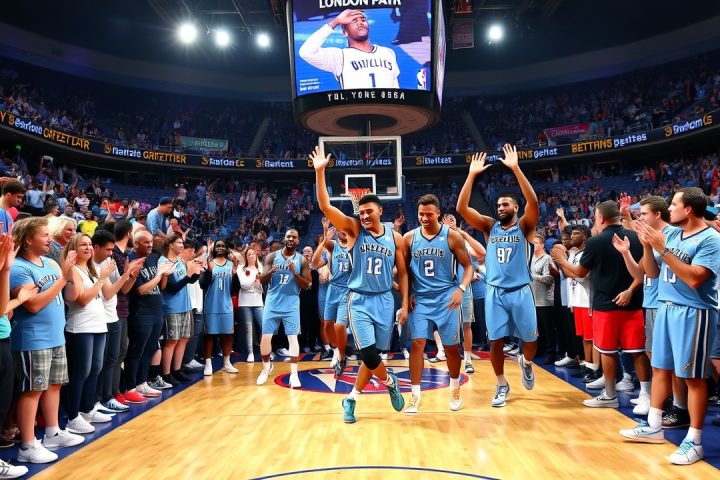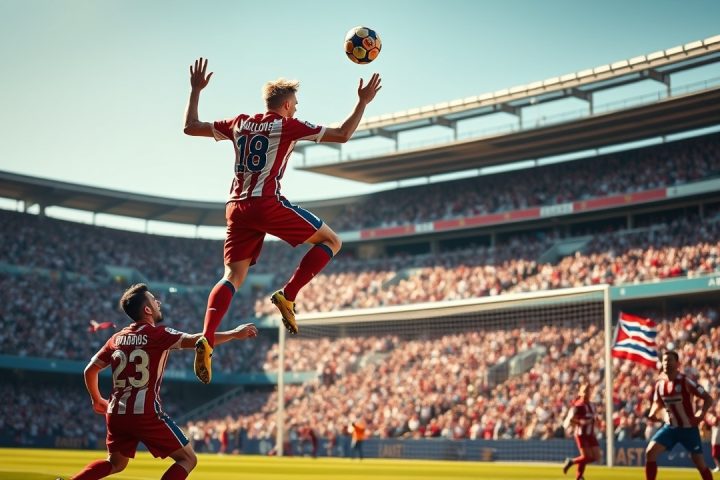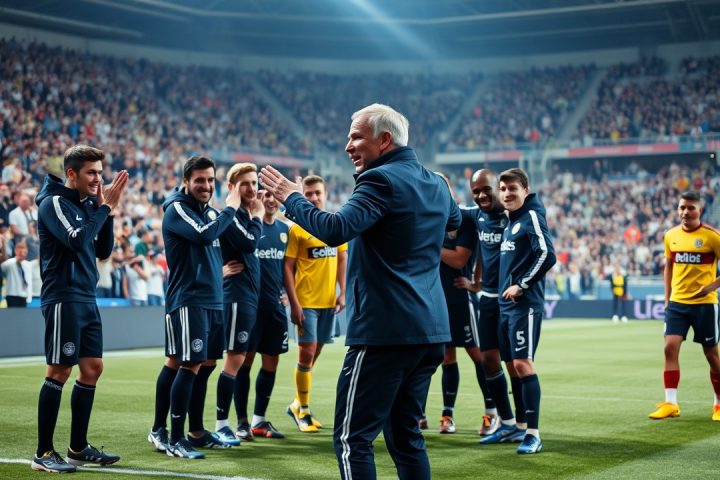Transformation at Ajax’s De Toekomst Academy
In the heart of Ajax’s De Toekomst academy, a profound transformation is taking place, one that seeks to honor the revolutionary principles laid down by football legend Johan Cruyff. Jasper van Leeuwen, a pivotal figure in this revival, asserts that the mentality of winning is deeply ingrained in the players who step onto Ajax’s grounds. Winning isn’t merely an end goal, though; it’s the cultivation of top-tier talent that lies at the core of Ajax’s mission.
Van Leeuwen reflects on a lighthearted exchange with an under-15 coach regarding the lack of media coverage for youth championships, emphasizing that true victories in youth football should be measured by the players’ development rather than accolades.
The Cultural Shift Since 2011
The cultural shift at Ajax’s football academy truly began in 2011 when Cruyff and his supporters regained control, spurring a renaissance of young talent that included now-prominent figures like Arsenal’s Jurrien Timber, Liverpool’s Ryan Gravenberch, and Barcelona’s Frenkie de Jong. Cruyff’s enduring impact echoes through the academy, providing a blueprint that still guides their approach to player development, even years after his death from lung cancer.
Reflecting on Ajax’s tumultuous past, Cruyff lamented in a 2010 column that the club had lost its identity.
Challenges and Reforms
The institutional issues, including a complex board structure and varying opinions on strategic direction, stifled progress and sparked conflicts—culminating in courtroom disputes over leadership changes. Ruben Jongkind, a key advocate for Cruyff’s vision, highlights the struggles within Ajax, encapsulated by a club culture torn between tradition and the demand for modernization amidst financial instability.
At the core of Cruyff’s reform was the nagging concern that Ajax’s academy had fallen behind in nurturing elite players. Upon rejoining from FC Barcelona, Cruyff initiated comprehensive changes aimed at revitalizing the youth program, pulling from his rich experiences as both player and coach. Working alongside Jongkind and head of talent recruitment Van Leeuwen, they crafted a blueprint for reform on a roll of wallpaper from an Airbnb, which they later presented to club legends such as Marco van Basten and Dennis Bergkamp.
Their hard-fought deal resulted in a 25 percent increase in the academy budget, a significant investment that has since translated to over €400 million in player sales.
Redefining Ajax’s Identity
Cruyff’s methodology sought to redefine Ajax’s identity, addressing the decline in talent production and the attractive playing style once synonymous with the club. Jongkind identifies the loss of street football and the evolution of societal expectations as key factors that necessitated this shift. In response, they revamped the academy’s internal structures, notably adjusting compensation models for coaches to value youth development across the board rather than emphasizing victories alone.
Their approach pivoted to view players through developmental groups rather than strict age classifications, allowing for tailored training that accounted for individual growth trajectories.
Success Stories and Future Aspirations
This progressive mindset bore fruit with late bloomers like Frenkie de Jong, who initially evaded Ajax’s radar due to scouting oversights. By revising their assessment techniques and understanding player potential beyond early physical attributes, Ajax opened doors for a new generation of talent. Players such as Noussair Mazraoui and Ryan Gravenberch exemplify the academy’s ability to manage and maximize a diverse range of talents, ensuring that each individual’s development is nurtured regardless of when they peak physically.
As they embraced this holistic philosophy, Ajax faced the challenge of instilling Cruyff’s principles consistently across all youth ranks, emphasizing the importance of a shared attacking philosophy. Despite the inevitable setbacks—resulting in match losses as development strategies sometimes prioritize player growth over immediate successes—the long-term vision remained steadfast.
Cruyff’s insistence that education in football is a gradual process has influenced how matches are utilized for player learning experiences, reinforcing the academy’s integral role in Ajax’s future.
Legacy and Continuing Journey
One of the shining moments during this transformative period was the rise of Abdelhak Nouri, a creative force within the academy who tragically suffered a life-altering medical incident just as he was transitioning to the first team. Nouri’s legacy as a symbol of Ajax’s hopeful future further underscores the academy’s mission to remember and honor those who epitomize its core values.
While both Jongkind and Van Leeuwen have now ventured beyond Ajax, taking their expertise to clubs around Europe, the journey to redefine Ajax’s academy continues. They remain committed to developing comprehensive football strategies that pay homage to Cruyff’s teachings. As the narrative of Ajax evolves, its foundations—laid by Cruyff—continue to inspire global football, reminding us of the importance of nurturing talent in a sport where results have often overshadowed development. Cruyff’s legacy, like the enduring roots of Ajax itself, will undoubtedly shape the future of football.




